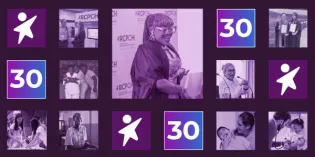
Following the recent publication of NHS England's 'Getting the Basics Right' 10-point plan and the accompanying letter from Sir Jim Mackey and Meghana Pandit, RCPCH welcomes the Government’s commitment to improving the working lives of the 75,000 resident doctors. This initiative outlines steps to address long-standing issues such as payroll errors, insufficient rota management, and access to proper rest facilities—matters of critical importance to our members and the wider profession.
In response to the 10-point plan, Dr Cathryn Chadwick, VP for Training and Assessment said:
The College welcomes the introduction of a clear, time-bound plan and the directive for progress to be reportable directly to Trust boards. It is a common-sense approach and that should improve working lives across the NHS. Some elements are aspirational, need for further detail and robust reporting mechanisms to ensure effective delivery but it is encouraging to see the operationalisation of principles we have advocated for some time - most notably in the RCPCH Training Charter, Thrive Roadmap, and recent submission to the NHSE review into postgraduate medical training.
While ultimately, the success of this plan will depend on consistent implementation and rigorous monitoring, there is a framework here that could present a significant advancement for the workforce. The College remains ready to support partners to achieve these ambitious goals.
This plan is a welcome and important first step. The key challenge is in defining precisely how these objectives will be achieved and measured.
The College encourages Trusts and healthcare leaders to utilise a suite of additional RCPCH resources that offer guidance on practical solutions, implementation frameworks, and ongoing support for workforce wellbeing.
These resources can help bridge the gap between policy aspiration and meaningful change on the ground, ensuring that resident doctors experience tangible improvements in their day-to-day working lives:
- Thrive Paediatrics resource hub (on RCPCH Learning)
- Flexible working in paediatrics: Insights and data, legislation and guidance
- Rostering guidance for postgraduate doctors in training (England)
- Self-rostering in paediatrics - case study presentation
- Reasonable adjustments at work – good practice for paediatricians
- Embracing neurodiversity and supporting neurodivergent paediatricians - guidance







